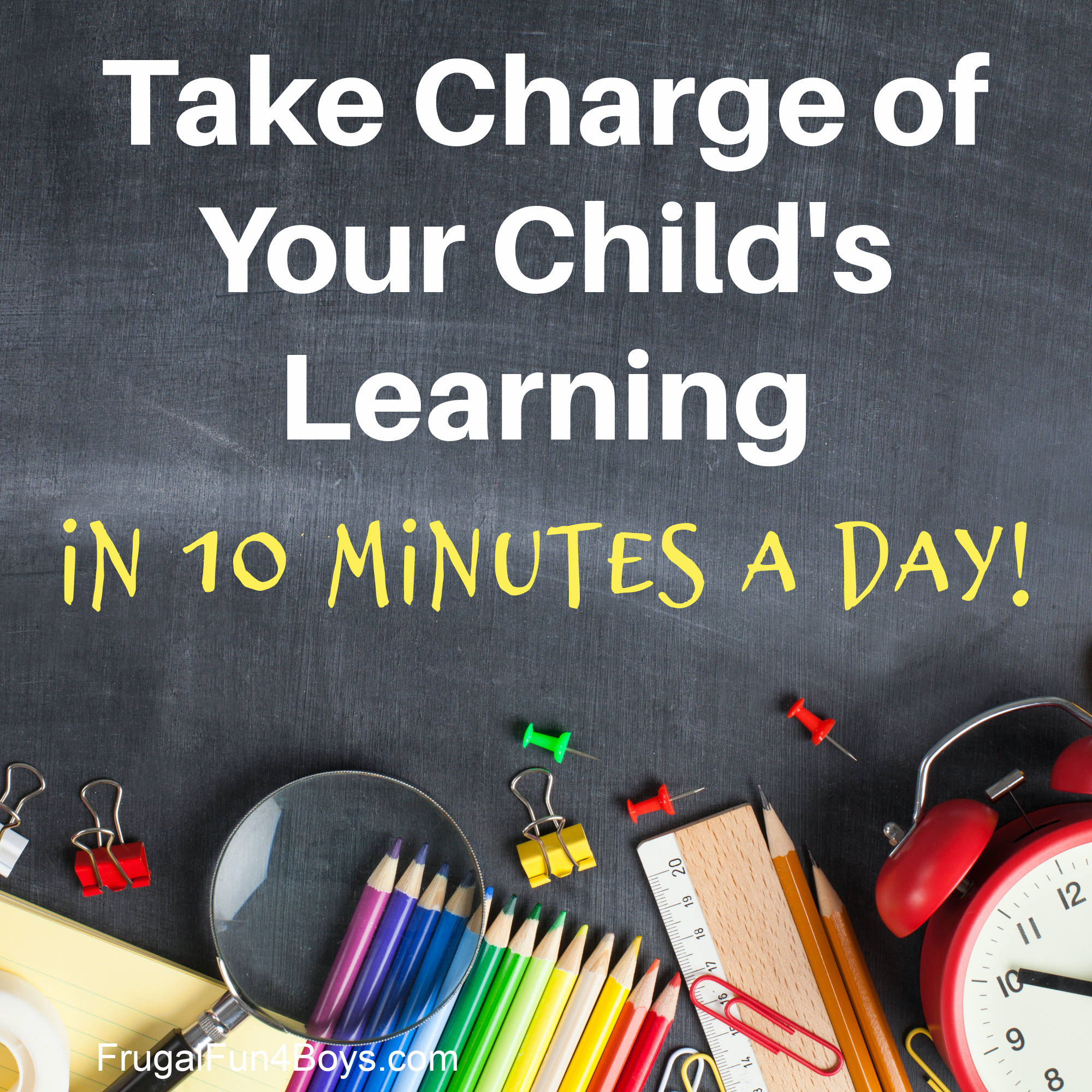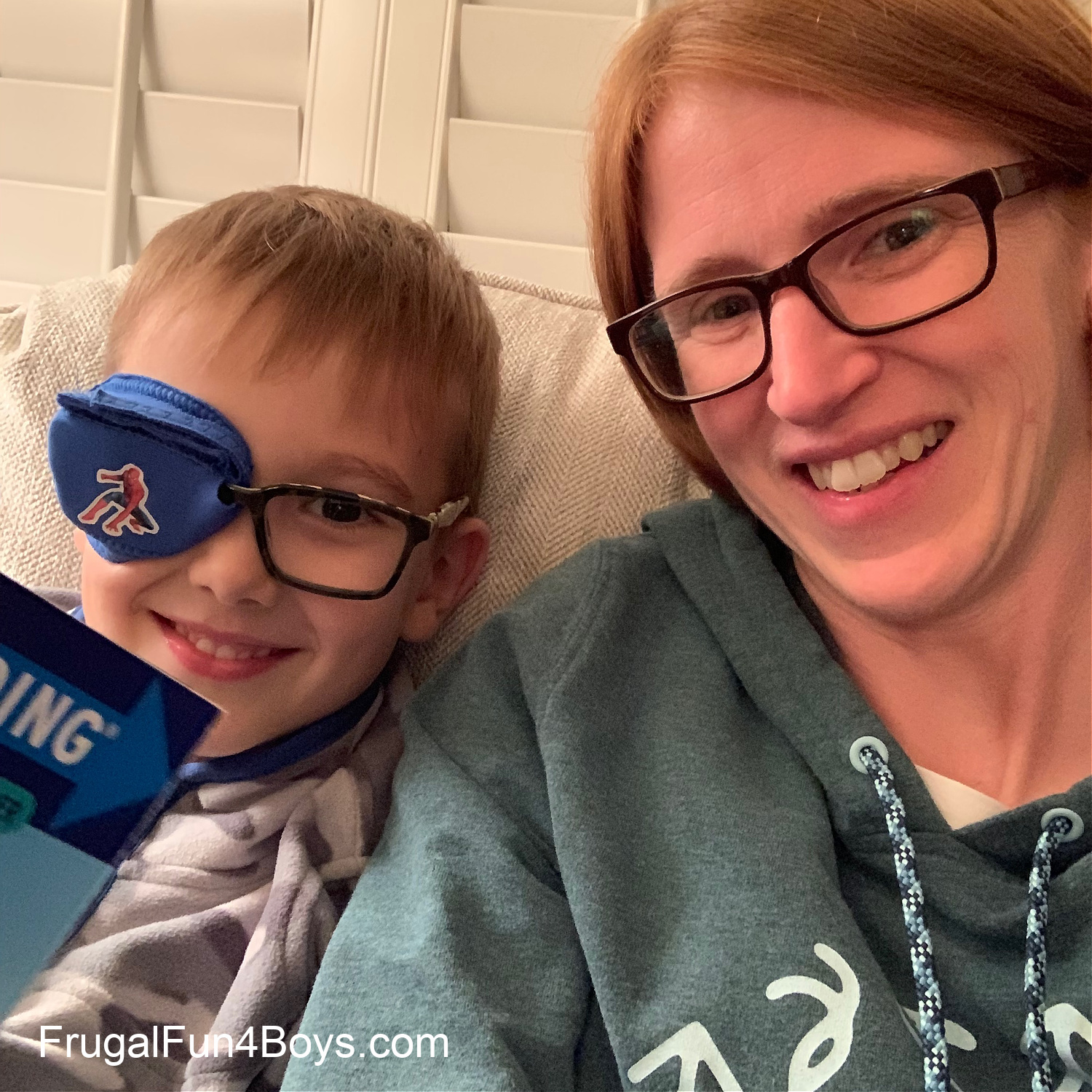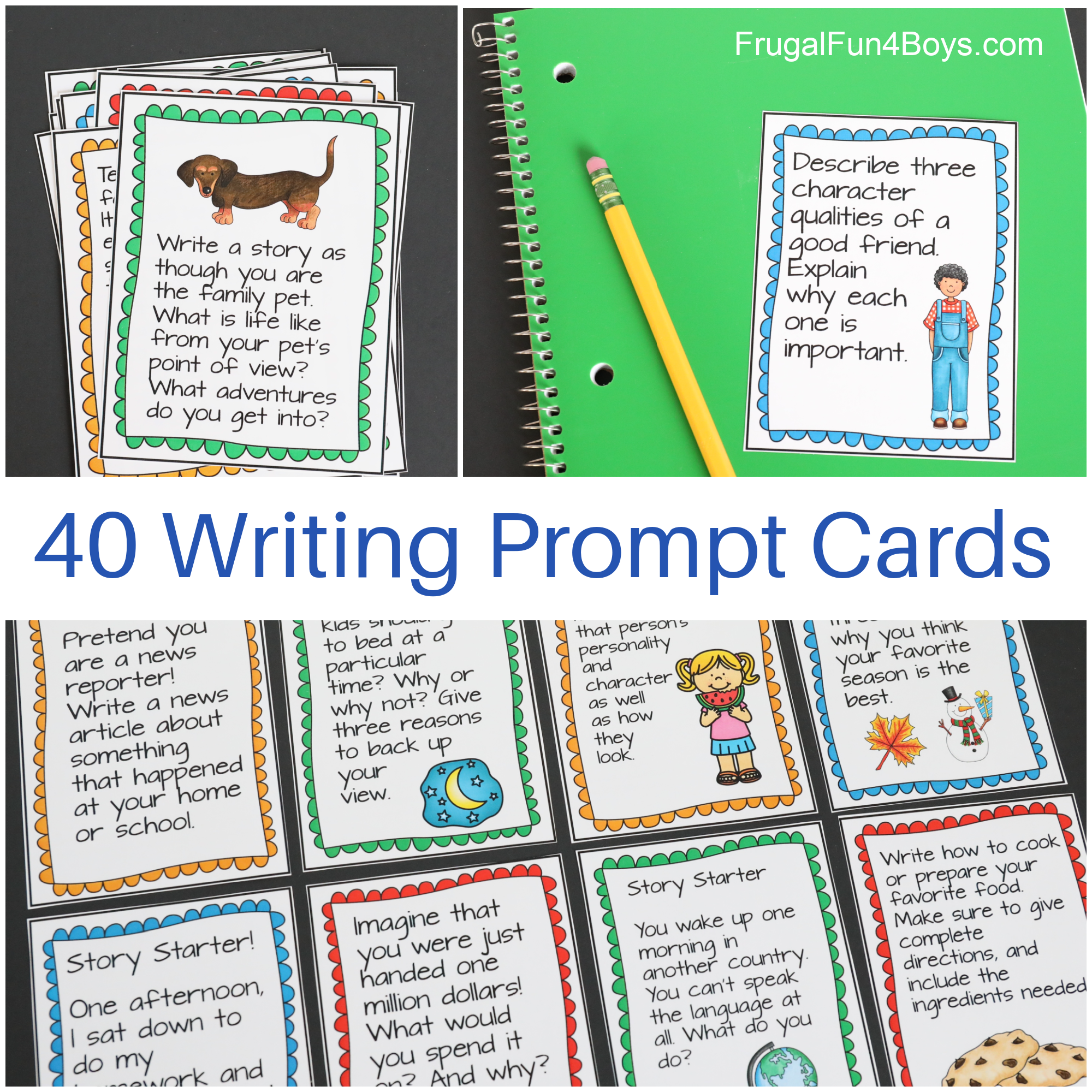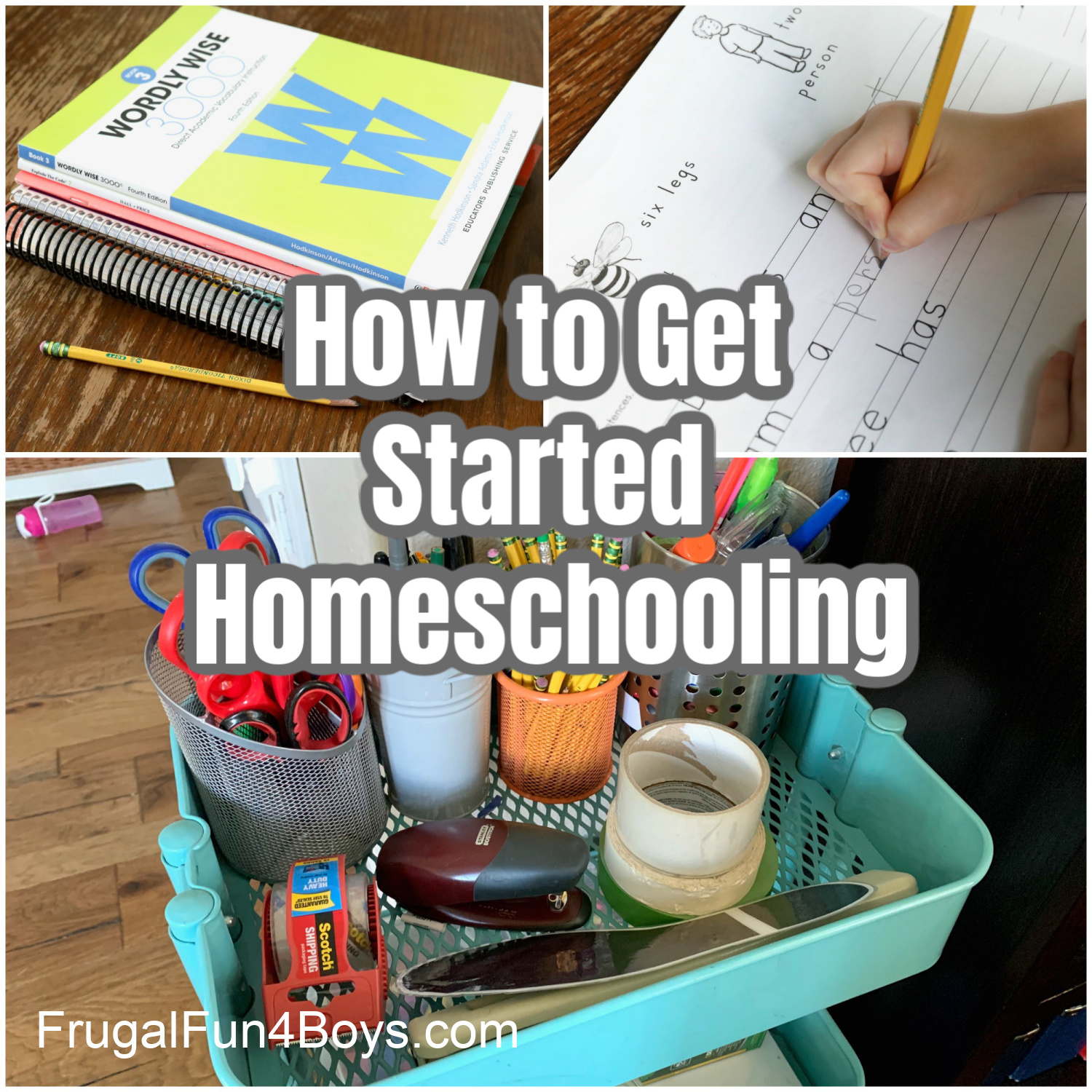Back-to-school time always feels like a fresh, new start!
Except that this year it kind of feels like a mess.
And a little overwhelming, discouraging, and confusing. What adjective would you use? I think it’s safe to say that last year was not the best. And for some of you, that’s putting it mildly! Life has been disrupted over the past 18 months, and in many cases, our children’s educations have paid the price.
We are homeschoolers and didn’t have to contend with masks or distance learning, but our school year was certainly disrupted. We had covid in our home, twice. Four weeks of quarantining, plus two other times during the year that we quarantined for exposure. We also had a crippling snow storm that shut us down for another week in February. All that time at home did NOT lead to increased learning because we were SO distracted!
I want to let you know that even if last year was a downright disaster, and whether your kids go to public school or you homeschool, there is HOPE. Lots of hope! We’ve had multiple bad years of homeschooling over the years (difficult babies, selling our house and moving, etc.) and my oldest son is headed to college this fall with scholarships! One bad year or even two is not going to permanently ruin anyone’s education.
Also, the skills your child wasn’t able to master last year (for whatever reason) will now be EASIER because your child is older. If your child failed to grasp addition with carrying last year, you can teach it to her in far less time this year.

So, I want to show you an easy way that any parent can make significant educational progress with their child at home in only 10 minutes a day.
I was first introduced to this concept when our family tried Classical Conversations in the fall of 2019. Attending the community days did not ultimately work out for us because of our complex schedule, but I was amazed at how much we learned through the memory work. If you’re not familiar with Classical Conversations, it’s a classical homeschooling method that relies on memorization during the elementary years (like all classical education). Each week, we were memorizing math facts, grammar, history facts, timeline dates, and more. It was amazing how much the kids could memorize with just a small amount of work each day. And it was amazing how much the content they memorized enriched their lives. They started noticing references to the people and places we had memorized in history and asked questions about them. Their knowledge of geography exploded by studying the weekly map assignments just a few days a week.
Our experience showed me how easily we could shore up weak spots in our education through focused practice time.
So how do I implement the 10 Minutes a Day plan?
- First, make a list of 3-4 areas that your child needs to work on.
Even if it feels like the past year (or two) was a complete loss, choose not to be overwhelmed. Truly! For one thing, the amount of loss can probably be overcome much more easily than what it feels like. And for another thing, you must start where your child is and work forward. Dwelling on how bad things are makes it more difficult to proceed forward. Focus on progress, not deficits!
There are SO many things you can accomplish in 10 minutes a day! Here are some suggestions for kids in the elementary grades (ages 6 -10), but you can easily modify these for middle schoolers as well.
- Memorize addition, subtraction, multiplication, or division facts. The Math-U-See website has a free online drill program and a free worksheet tool! Note that the levels for the worksheets start at first grade. Alpha = first grade, and so on. I’m sure there are lots of other online tools, but this is what we use.
- Skip Counting by 2′, 5’s, etc.
- Measure with a ruler. Start with the closest inch, and work up to quarter and eighth of an inch, depending on age. Or use metric. Or both!
- Learn sight words.
- Learn to tie shoes.
- Improve handwriting. Or learn cursive! Neat handwriting really pays off. It stinks when you make mistakes reading your own handwriting, haha. (We’ve had that happen!)
- Learn to identify nouns, verbs, adjectives, and pronouns. Use books you already have. Pick a sentence and identify the parts of speech.
- Read out loud, with expression.
- Improve reading comprehension. Have your child read out loud, and then ask them questions. If you want more structure, we really like the Reading Detective series by The Critical Thinking Co. This might take 15 minutes, depending on your child’s reading speed. The books feature short excerpts with comprehension questions. The questions require kids to back up their answer from the text! Great for 3rd grade through middle school.
- Improve writing skills. Get a spiral notebook, and have your child write about the best thing they did that day, describe a favorite person, etc.
- Learn to tell time.
- Learn to count money.
- Memorizing the US states and capitals. Also identify them on the map.
- Learn new vocabulary words. You might want to try the Wordly Wise series for word lists and definitions. There are activities in these books, but just discussing the words at the dinner table is fabulous!
- Become an expert on any subject. Spend 10 minutes reading about an area of interest – rock collecting, photography, US presidents past and present, classic cars, computer programming, etc.
- Learn to count musical rhythms. Or improve sight reading in general for an instrument. 10 minutes of daily sight reading yields great benefits!

2. Then choose 1 skill, or possibly 2, to start with.
You can’t conquer everything at once, but you can start. For older kids, it would definitely be possible to pick two areas to address and do a 20 or even 30 minute practice time. For younger kids, I would stick to one. But it’s up to you!
3. Choose a time that works for you, and then jump in! If your kids are at home, first thing in the morning or right after lunch is a great time for practice. If your kids are in school, right after dinner may be a good time.
We’ll be starting this week on multiplication facts for my 4th grader. He didn’t adequately learn them last year, and he forgot a LOT over the summer. My 2nd grader will be starting with handwriting.
Once school starts, this won’t be ALL we do each day, of course. But we’re choosing certain skills for focused practice.
After a week we’ll have spent 50 minutes practicing a skill, and we’ll already be seeing some results.
Here are some helpful resources for learning at home!
Be sure to check out our Printable Writing Prompt Cards for 3rd – 5th grade (ages 8 – 10)

If you’re exploring homeschooling, here’s a post on How to Get Started Homeschooling.


4 Comments
Lisa Aug 2, 2021
I love you site. You provide great info and fun things for my 5 year old to do
Kim Crunkleton Alix Aug 2, 2021
I love your ideas! I hope parents will take things slowly as you advise. My favorite thing to see was telling time. The majority of kids today can't tell time with an analog clock. Many have difficulty with time passing. The Time Timer sold on Amazon is a great tool for those of you who don't have one of these. I'm ADD and I use it to let me know time is passing so I stay on schedule! LOL!
Jami Fairbanks Aug 5, 2021
For whatever reason, I was feeling overwhelmed, discouraged, unprepared and in need of some inspiration with homeschooling this morning. As I was searching other places for some help, my son was in need of some inspiration as to what he should do with his time so I came to your website. I have enjoyed all of your ideas over the years and knew we could find something for him to do. When I saw this post I realized it was a blessing in disguise because it was exactly what I needed. Thank you so much for all the work you put into this and for the help you give all us moms! I hope you are blessed because of it!
P.S. My son is happily building Lego Nerf targets as I type this. :)
Chrissy Aug 9, 2021
We are home schooling our 9 yr old for the 1st time. These are super simple great ideas that make learning fun and not so stressful for the children. Great job!
Post a Comment